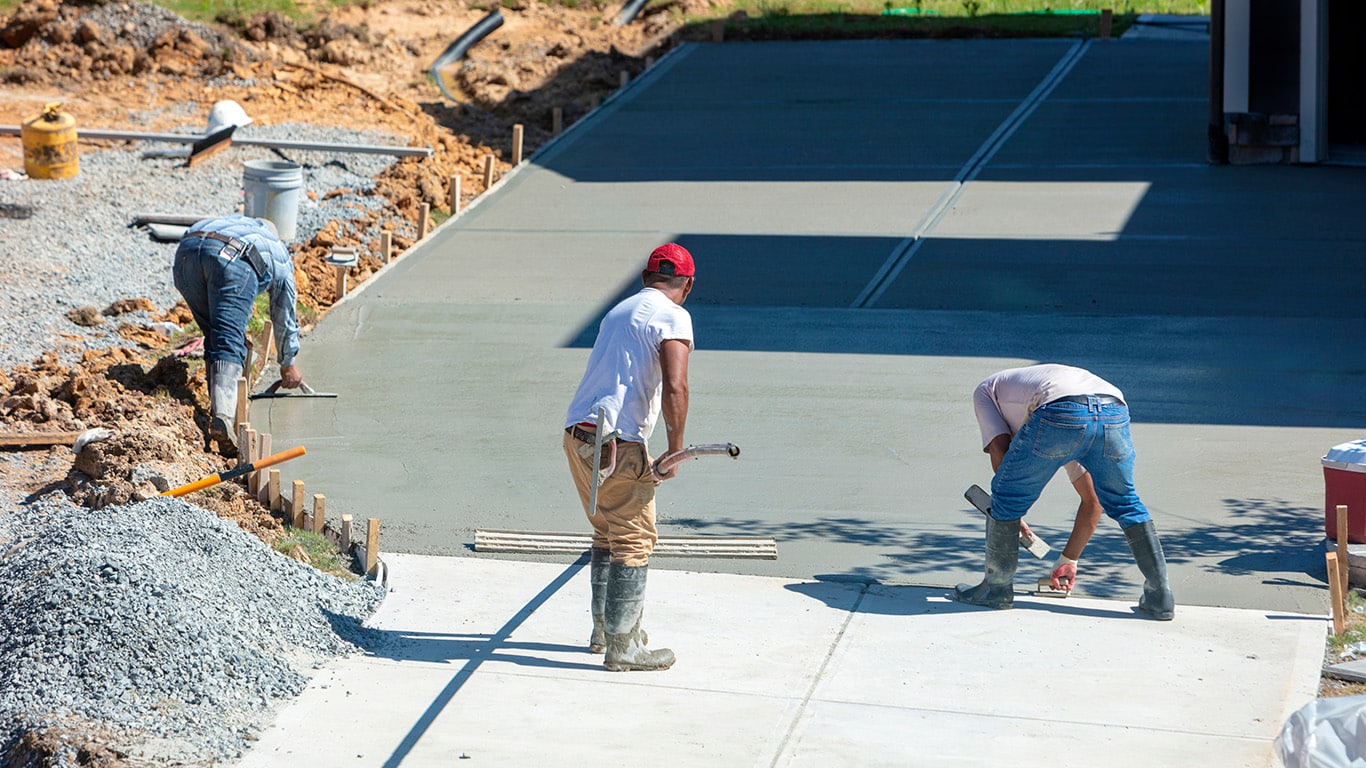
When it comes to improving curb appeal, increasing home value, and creating a lasting first impression, few upgrades are as impactful as a well-installed concrete driveway. Known for its strength, longevity, and design versatility, concrete is one of the most popular materials for residential driveways. Whether you’re building a new home or replacing an old, cracked surface, investing in a professional concrete driveway installation is a smart and worthwhile decision.
In this article, we’ll explore the benefits of concrete driveways, what the installation process involves, and key considerations to ensure your project is a success.
Why Choose Concrete for Your Driveway?
Concrete is favored by homeowners for several compelling reasons:
1. Durability and Longevity
Concrete driveways are known to last 30 years or more when properly installed and maintained. Unlike asphalt, which may require more frequent resurfacing, concrete resists heavy loads, temperature fluctuations, and weathering far more effectively.
2. Low Maintenance
Once installed, concrete requires minimal upkeep. Occasional sealing and cleaning can keep the surface looking new for years. Cracks are rare with proper installation but can be easily repaired if they occur.
3. Curb Appeal
Today’s concrete is far from plain. With stamped, stained, and brushed finishes available, concrete can mimic natural stone, brick, or tile, giving homeowners countless options to match their home’s architecture.
4. Eco-Friendly
Concrete driveways reflect more light than darker materials, which can reduce the heat island effect around your home. Additionally, many contractors offer pervious concrete options that allow water to seep through, reducing runoff.
The Concrete Driveway Installation Process
Installing a concrete driveway is a multi-step process that requires precision, skill, and the right materials. Hiring a qualified contractor is key to achieving a strong, even surface that lasts for decades.
Step 1: Planning and Permits
Before any work begins, your contractor will assess the site, discuss your design preferences, and acquire any necessary permits. Drainage, slope, and size are all considered to ensure proper function and compliance with local building codes.
Step 2: Site Preparation
The existing driveway (if any) is removed, and the ground is excavated to the required depth—usually around 6 to 8 inches. A solid base is then prepared using compacted gravel or crushed stone, which helps prevent shifting and settling.
Step 3: Formwork and Reinforcement
Wooden or metal forms are set in place to define the edges of the driveway. Reinforcing steel mesh or rebar may be added to strengthen the slab, especially for driveways that will bear heavy loads.
Step 4: Pouring the Concrete
Once everything is in place, concrete is poured and spread evenly throughout the form. This process must be done quickly and efficiently to prevent uneven setting. The surface is then smoothed and leveled using specialized tools.
Step 5: Finishing Techniques
Depending on your design preferences, the surface may be textured (broom finish for slip resistance), stamped, or stained. Edges are finished, and control joints are cut into the slab to minimize cracking over time.
Step 6: Curing
Curing is essential to allow the concrete to reach its maximum strength. This process typically takes 7 days, although full curing continues for up to 28 days. During this time, the driveway should be kept moist and free from foot or vehicle traffic.
Design Options for Concrete Driveways
Gone are the days when concrete driveways meant dull gray slabs. Modern techniques allow for a wide range of customization options:
- Stamped Concrete: Patterns that mimic stone, tile, or brick.
- Colored Concrete: Pigments or stains added for visual appeal.
- Exposed Aggregate: A textured finish using decorative stones.
- Brushed Finish: A clean, simple texture that improves grip.
Your contractor can help you select a design that complements your home’s exterior and enhances your landscape.
Tips for a Successful Concrete Driveway Project
To get the most from your investment, keep the following in mind:
- Hire a Licensed Contractor: Always work with experienced professionals who are insured and familiar with local codes.
- Don’t Skip the Base: A strong foundation is essential for durability.
- Seal the Surface: Regular sealing protects against stains, water, and weather damage.
- Watch for Drainage: Ensure water runs away from your home and doesn’t pool on the driveway.
Conclusion: Invest in Quality and Style
A concrete driveway is more than just a path to your garage—it’s a durable, low-maintenance upgrade that enhances your home’s appearance and value. With endless design possibilities and decades of reliable use, concrete remains one of the smartest choices for residential driveways.
If you’re ready to improve your property with a long-lasting, beautiful surface, consider reaching out to a local concrete driveway installation expert. With the right team and a clear plan, you can transform your curb appeal and enjoy a driveway that stands the test of time.